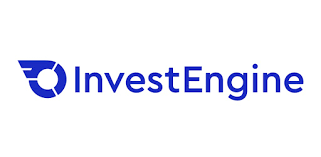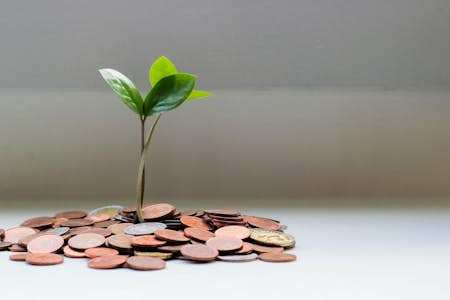Many of us may have heard the term ethical investing and may have even read up on what that really means. Often, it makes such compelling reading that you will want to start doing it. But how? You need to know more than just what ethical investing is; you need to know how to do it too.
Often that means choosing an ethical savings account. The market for ethical savings accounts is continually growing. To some, the market may be overwhelming. Breaking down the choice is key to choosing the right savings account for you. Doing so makes quick work of finding an ethical financial product suitable for your needs.
Discover stocks and shares ISAs from the UKs leading providers. Click on your chosen provider to get started!
What makes an ethical savings account ethical?
Being ethically sound means different things to different people. That’s why it is crucial to do your research. You should research each savings product you want to open if you want to invest ethically. For example, some investors will want to invest in companies that promote equal rights when conducting business. Others will want a company well on its way to becoming carbon neutral within the next few years.
Because of investors’ divergence in wants and ideals, there is no one yardstick that people can use to gauge how ethical any single savings account is. Instead, it falls upon the investor to ensure that the company they choose to invest with closely aligns with their own ethical viewpoints.
That said, in an increasingly woke society, the commonality between what different investors want in a company is growing. Importantly, investors are also more fully understanding the need and importance for a company to be run ethically. Evidence has shown that a focus on ethical operations improves not only a company’s ability to survive but also its ability to thrive.
Before you choose an ethical savings account
Before choosing an ethical savings account, you need to ensure you know your own needs and requirements. Not all savings accounts will be suitable for your situation - even if they are run in a highly ethical and sustainable way.
It is essential to remember your risk profile. Knowing that determines how willing you are to opening riskier savings accounts and how well you can tolerate losses. Additionally, you need to consider your investment objectives. Do you want to build that much needed pension pot to provide an income when you retire? Or do you want to earn an extra income now?
Lastly, your investment timeline needs to also be at the forefront of your mind. Some ethical savings accounts, or savings accounts in general, commonly have lengthy fixed terms so that you cannot have quick access to your cash. If you cannot lock away your money for a certain amount of time, it is worthwhile looking at shorter-term products - ethical or otherwise. If you don’t, you could get penalised for making an early withdrawal.
Choosing an ethical savings account
There are a couple of steps to follow that will help you choose an ethical savings account. They are choosing the provider and then selecting the savings account they offer.
Choose the provider
Choosing the provider you go with for a savings account is a quick way to start saving ethically. Some providers have a much more robust way of making their procedures as ethical as possible. Or it could be that to provide the returns you enjoy on a savings account, they invest in other ethical companies or initiatives. Again, however, how you determine what is ethical is up to you.
What is vital, though, is that you choose a company with robust corporate governance. Simply because it has an ethical approach to everything it does, does not mean it is a commercially successful company. You need to ensure that you are comfortable with giving your money to that company for the term set out in its financial products’ conditions.
What is helpful here is that often, the two do go hand in hand. For instance, companies with a diverse board tend to garner better results. Some companies already reducing their carbon footprint will tend to be more forward-thinking. The result will be a company that is often better positioned to react to changing circumstances in the future.
Choose the savings account type at your chosen provider
Then, when choosing an ethical savings account, you need to identify what kind of savings account you want. Much like you would when investigating any place to put your money - regardless of how ethical you deem it to be. When choosing a savings account, you need to weigh up the products on offer in terms of the following characteristics:
Interest rate:
Crucially, you need to know from the outset what interest your money will earn when saved within your chosen account at your chosen provider. The interest rate will determine how much your money will grow, and therefore is crucial not only for budgeting for the future but also to help you compare other savings accounts.
Plus, you need to be aware of any conditions that that interest rate depends on. You may find that the more you invest, the higher the rate. Finally, some regular savings accounts may provide higher interest rates the more regularly you invest, too.
All that said, you may find that those with lower interest rates may end up being more suitable for you when you consider other features.
Duration
One such feature could be a savings account’s duration or timeline. Many savings accounts offer an introductory interest rate for a short period before reverting to a much lower one. Some only offer a set interest rate if you are willing to lock your money away for a set time. By and large, the longer you lock it away, the higher the rate.
When it comes to the duration of locking away your money, you need to consider your circumstances carefully. You may be able to lock away your money for a long time as you know you will not need it. For instance, you could have a healthy salary or minimal outgoings. As a result, you can easily survive with your money kept in an account where it earns interest.
Initial investment amount
Opening a savings account will often necessitate investing a particular sum of money to open the account in the first place. Many accounts will come with a minimum initial deposit amount. Some may be set so high that they are not a possibility for you. Usually, the more you can initially invest, the better the interest rate you achieve.
Other terms and conditions
All savings accounts with any provider will vary in some way. Many will include terms and conditions - like early withdrawal penalties - that may influence your final decision to open one. It is essential to understand the nuances of each potential account you may open before investing your money. Choosing the right savings account is all about weighing up the pros and cons against your own needs.
Other options similar to ethical savings accounts:
If you do not find a savings account that ticks all your boxes, either financially or ethically speaking, you may want to consider other options as a place to put your money. It is more and more possible to find ethical versions of the following:
Funds
Funds are a good investment product or type of savings account for many investors. They are perfect for those who are time-poor and do not have time to structure their investment portfolio through stock picking. Instead, investors can choose a fund that only invests in a way they believe in. In the case of ethical investing, ethically run funds invest in companies that have robust responsible corporate governance in place.
Investing in funds is a form of passive investing, which means you can benefit immediately from a diversified portfolio, lower management fees, and other advantages associated with passive investments. Some individuals may wish to invest in this way through a Stocks and Shares ISA. Such a product then provides further tax efficiencies.
Bonds
Bonds are another excellent investment choice for many. Bonds will often provide a fixed, regular income for bondholders. Companies sell bonds as a way of raising money to help themselves grow. To invest in bonds ethically, you simply have to select a company that meets your ethical criteria.
For example, some oil and gas companies may conduct a debt issuance. Yet, some companies within that industry will have better socially responsible practices than others. As an investor looking for an ethical savings account, you should identify the ones you deem to be ethically better.
Saving ethically
Saving ethically is a fantastic way to help build up your pension pot while also using your money to encourage good corporate governance.
The more companies that improve their business practices to run more ethically and sustainably, the better the net result for society. For example, consider the ever more pressing issue of climate change. Climate change requires all companies to start minimising their carbon footprint. By choosing only to invest in companies with a solid commitment to reducing climate change, investors can make their influence known. It forces businesses to have more socially responsible procedures.
However, it is imperative to remember that while many ethical savings accounts and investments provide more favourable returns, often in part due to being part of a better corporate governance structure, it is by no means a given. It is not automatically the case that your savings will go up by more than traditional savings products from providers with minimal ethical practices. Savings and investments, therefore, should be made according to your risk profile. Your risk profile is always so fundamental when choosing an ethical savings account.
We spoke to Emma Norledge, Deputy CEO at Wave Community Bank, who told Pension Times: "Ethical savings accounts are something we are seeing an increasing number of people actively looking for but in truth, they are not a new concept. Credit unions have been offering them in the UK for nearly 60 years.
"If you believe in shopping locally and supporting your local economy then saving with your local community credit union could be the solution. As co-operatives run by members for members, credit unions pay dividends rather than a guaranteed interest rate but saving with a credit union means you are helping your neighbours access affordable loans."







